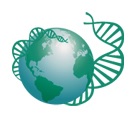Alliance for the Prudent Use of Antibiotics
Mission Statement
The mission of the Alliance for the Prudent Use of Antibiotics (APUA) is to strengthen global defenses against infectious disease by ensuring access to effective treatment and promoting appropriate antibiotic use to contain drug resistance. With a network of affiliated colleagues, APUA stands as the world’s leading organisation conducting research and education on antimicrobial treatment and resistance at the grassroots and global levels.
WAAW 2025 - newsletter
World AMR Awareness Week (WAAW) is here. As part of this global initiative, we are excited to share the latest ISAC/The Alliance for the Prudent Use of Antibiotics (APUA) Newsletter which is packed with insights and resources to help you stay informed and take action against antimicrobial resistance (AMR).
Inside this issue:
1. Antimicrobial stewardship as a team sport – why collaboration matters - Dr David Jenkins
2. Drive-AMS: Data-driven strategies for sustainable behaviour change - Dr Teske Schoffelen et al
3. Targeted strategies for cancer patients facing AMR challenges - Dr Reema Singh
4. Whiteboard animations to raise public awareness and prevent infections - Dr Mamoon Al Deyab Aldeyab et al
5. Latest AMR news and global updates
6. ISAC/APUA society news and upcoming events
WHO fungal priority pathogens list: challenges in diagnosis and management
This joint ISAC/ESCMID webinar explored the critical challenges posed by fungal infections, as highlighted in the WHO Fungal Priority Pathogen List.
Cornelia Lass-Flörl - Overview of the fungal priority pathogens Sevtap Arikan-Akdagl - Azole resistant Aspergillus fumigatus in clinics and environment: from screening to containment policy Anuradha Chowdhary - Emergence and spread of resistance in Candida species
Establishing the Pivotal Role of Infectious Diseases & Clinical Microbiology Professional Societies
This webinar, hosted jointly by ISAC and ESCMID, explored how professional infectious disease and clinical microbiology societies function worldwide, especially in the context of antimicrobial resistance (AMR).
Prof. Heiman Wertheim presented the results of a global survey on this topic and highlights key insights into governance, resources, and involvement in national AMR action plans.
These results were first published in the Journal of Global Antimicrobial Resistance (JGAR), an ISAC journal.
Also in this webinar, hear about the activities of ISAC and ESCMID from the society Presidents, Prof. Souha Kanj (ISAC) and Prof. Robert Skov (ESCMID).
The Built Environment of the Hospital and Nosocomial Infections
Explore how hospital design directly impacts infection control in this insightful webinar featuring two leading experts. • Professor Margreet Vos highlights why hospital design matters in preventing nosocomial infections. • Professor Paul Anantharajah Tambyah reflects on lessons from the pandemic and how the built environment can be optimised for future resilience.
Watch now to understand how architecture, infrastructure, and infection prevention intersect in modern healthcare.
ISAC / APUA newsletter
Just published - read the latest ISAC / APUA newsletter:
Standing up for reliable information and science in public health and healthcare
ISAC Executive CommitteeReview of antibiotic shortages in the Asia-Pacific region and reported experiences from Vietnam
Kaiang Song, Nguyen Hai Yen, Duong Hai Yen, Nguyen Thi Cam Tu, Thomas Kesteman, Sonia Lewycka, Rogier van Doorn, Vu Thi Lan HuongAntimicrobial stewardship education in undergraduate UK pharmacy programmes: a competency-based approach
Mamoon Aldeyab, Antonella Tonna, Naomi Fleming, Gill Damant, Sandra Martin, Ryan Hamilton, Sally Tipping, Diane Ashiru-Oredope; On behalf of NAPEGIn memoriam: Prof. George K. Daikos
George L. Daikos and George L. Petrikkos
Also catch up on the latest society news and important publications in the news.
"Antibiotics are uniquely societal drugs because individual use affects others in the community and environment. Better stewardship, incentives, and establishment of a special regulatory category will improve how they are used, marketed, and developed through incentives to industry."
Stuart B. Levy, M.D.
President of APUA, professor at Tufts University School of Medicine
From the IOM 25th Anniversary Symposium (1996) and The Antibiotic Paradox (2002)



